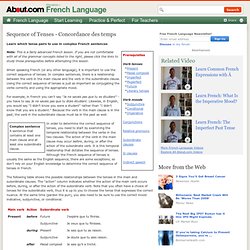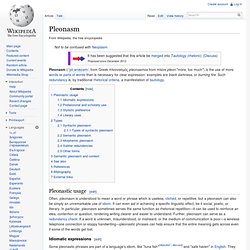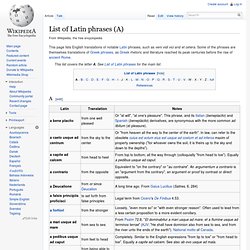

IPA: International Phonetic Association. History of the French Language. History of the French Language One cannot speak about the origins of the French language without addressing the topic of Romance languages, the family of language to which French belongs. Even though Romance languages, share certain qualities not found in contemporary Latin that is taught today, it is believed that Latin is the father of the Romance group of languages. Latin was a language used by Romans during the Roman Empire, which dated to the years before and after the birth of Christ. Julius Caesar , an emperor of the Roman Empire, conquered Gaul , now known as present-day France in 50 BC. The Romans found these people speaking a language known as Gaulish. Frankish Influence. History of French Language. Une Histoire de la langue française @ Globe-Gate The present site is not meant to serve as a History of the French Language textbook.

A number of the nearly 100 links may seem extraneous to traditional historical linguists; some of them show a political bias, and some do not bring the accuracy of a Mildred Pope to the task. With few exceptions, descriptions of gradual phonemic shifts in French are lacking on the WWW. This kind of internal history, along with some aspects of external history are more effectively studied . What the site offers is great wealth in the variety of its historical topics, including modern efforts to legislate French language use.
Stages and Historical Landmarks Acte juridique, écrit en ancien français (1373) Avenir de la langue française Brève Histoire de l'Argot Français La Cantilène de Sainte Eulalie (first proto-French literary text) Nina Catach, "Les dictionnaires de l'Académie française"(beaucoup sur l'histoire de la langue) D. Gloses de Reichenau (8e siècle) French Language. French Language General Overview Area of Distribution and Number of Speakers French (Français) is a Romance language spoken in France, Belgium, Switzerland, Canada (principally Quebec), northern New England (especially the state of Vermont), the state of Louisiana and in many other countries and regions formerly or currently governed by France.

It is an official language of more than 25 countries. French is spoken as a mother language by 72,000,000 people and as a second language by some other 52,000,000. Origin and History French dialects developped from the Vulgar Latin which was brought to Northern Gaul with the Roman conquest in the 1st century B.C. Gallo-Romance (5th-8th centuries). The standard for French is based on the dialect of Île de France (technically known as Francien) which has been the official standard language since the mid-16th century. French Sequence of Tenses ~ Concordance des temps. Note: This is a fairly advanced French lesson.

If you are not comfortable with all of the grammar concepts listed to the right, please click the links to study those prerequisites before attempting this lesson. When speaking French (or any other language), it is important to use the correct sequence of tenses. In complex sentences, there is a relationship between the verb in the main clause and the verb in the subordinate clause. Using the correct sequence of tenses is just as important as conjugating the verbs correctly and using the appropriate mood. For example, in French you can't say "Je ne savais pas que tu es étudiant" - you have to say Je ne savais pas que tu étais étudiant. Pleonasm. Pleonastic usage[edit] Often, pleonasm is understood to mean a word or phrase which is useless, clichéd, or repetitive, but a pleonasm can also be simply an unremarkable use of idiom.

It can even aid in achieving a specific linguistic effect, be it social, poetic, or literary. In particular, pleonasm sometimes serves the same function as rhetorical repetition—it can be used to reinforce an idea, contention or question, rendering writing clearer and easier to understand. Further, pleonasm can serve as a redundancy check: If a word is unknown, misunderstood, or misheard, or the medium of communication is poor—a wireless telephone connection or sloppy handwriting—pleonastic phrases can help ensure that the entire meaning gets across even if some of the words get lost.
Idiomatic expressions[edit] Some pleonastic phrases are part of a language's idiom, like "tuna fish"[disputed ] and "safe haven" in English. Professional and scholarly use[edit] Stylistic preference[edit] Literary uses[edit] List of Latin phrases (A) This page lists English translations of notable Latin phrases, such as veni vidi vici and et cetera.

Some of the phrases are themselves translations of Greek phrases, as Greek rhetoric and literature reached its peak centuries before the rise of ancient Rome. This list covers the letter A. Routes Into Languages. Liens et ressources utiles / Useful links and resources. Grammaire comparative du français et ... - Jean Paul Tremblay. ATILF - Analyse et Traitement Informatique de la Langue Française.